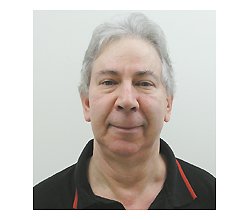
What’s the single biggest misconception or “myth” about audio?
The two biggest myths are probably that there are aspects of audio fidelity that “science” hasn’t yet learned how to measure, and that listening is a more reliable way to assess the quality of gear than measuring. I see magical thinking all the time in audio forums, but it’s easy to prove that everything affecting the fidelity of audio devices is already known.
A spectrum analyzer can display artifacts 100 dB below the music, and is highly reliable and repeatable, versus human hearing that varies from moment to moment, and is influenced by the masking effect. Many types of distortion and other artifacts can be very difficult to hear, even when they’re only 40 dB below the music.
What sources proved most valuable as you wrote and assembled 650-plus pages of significant technical information provided in the book? How did you fact check and verify?
The book actually totals 739 pages when including the three bonus chapters online. I’ve been involved with audio for many years as a recording engineer, circuit designer, and computer programmer, so I already had a solid grasp of the science. But I did learn a few things! I was fortunate to get advice from microphone expert Bruce Bartlett and loudspeaker expert Floyd Toole.
Another friend, electronics engineer John Roberts, read my entire manuscript as I wrote it, and audio expert Mike Rivers did the technical review. All of these people provided invaluable suggestions and fact checking.
How do you clearly separate what is objective in audio versus what is subjective?
Subjective preference is impossible to define, so I don’t even try. I do address some aspects of preference, such as the perceived improvement after adding acoustic treatment. But mostly I address the science of audio, and explain how audio circuits and their plug-in equivalents are used and how they work internally.
It’s impossible to “measure” the quality of a piece of music, or assess one’s enjoyment. But it’s absolutely possible to assess fidelity, even when a perfectly clean sound is not the artistic goal.
